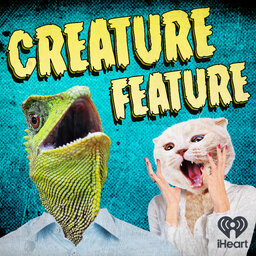Orangutan, Heal Thyself
These animals have figured out how to treat their own ailments with the medicine available to them in their habitats. Plus, what can we learn from animals about human medicine? Discover this and more as we answer the age old question, does swallowing a rough leaf a day keep Doctor Zaius away?
Guest: Dr. Kaveh Hoda
Source for last week's mystery animal sound: https://www.youtube.com/shorts/v_rSygXA1lw
 Creature Feature
Creature Feature


